Strictly Personal
In punishing Zuma and Trump we indict ourselves, but it must be done, By Jenerali Ulimwengu
Published
9 months agoon
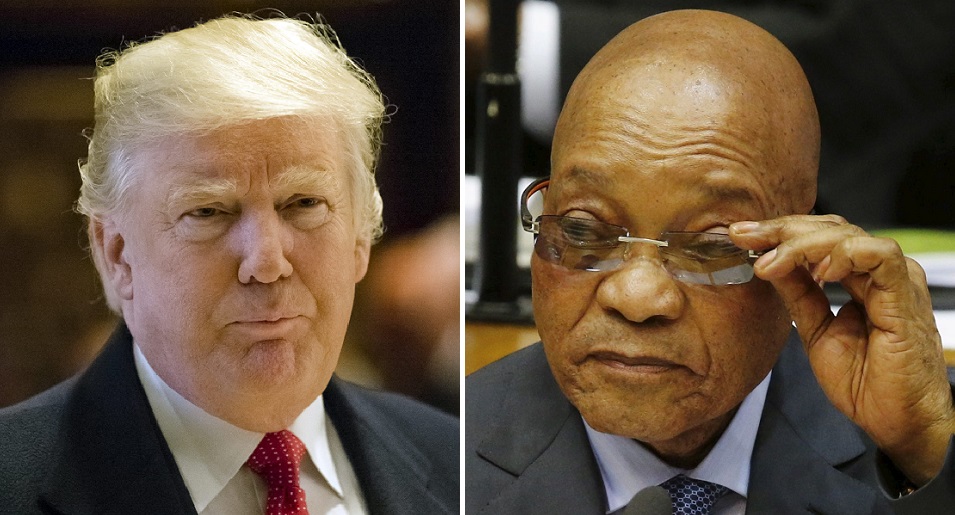
There is hardly anything elegant in the spectre of a former head of state being pursued criminally, and what is happening to Donald Trump and Jacob Zuma is particularly shabby.
Two jurisdictions’ worlds apart have found that their former chiefs were worth investigating for infractions committed either in or out of office and in the case of one of them, it has been decided that he go to jail while the other’s fate still has to be decided.
The want of elegance I mean here flows from the fact that these two individuals once occupied exalted positions, were looked up to by whole nations, and should be considered role models by large portions of the societies wherein they evolved.
To now turn around and say they ought to go to jail kind of demeans the governance systems that they served, and which are now looking to lock them up as thugs.
When we accept individuals as being worthy of our trust and able to guide our national affairs, we are in effect creating a filial relationship; we are family and, as such, are bound to feel hurt alongside them.
Part of us is invested in their persons, and their moral death does kill something in us too.
Of course, there will always be the schadenfreude— “I’m happy because you’re miserable” — section, but that is the proverbial exception that proves the rule: Joe Biden wouldn’t shed a tear, nor would Thabo Mbeki.
What I am saying is that when we choose people who govern us, we are supposed to skim the top crust of the pot and distill la crème de la crème, and not scrape the bottom of the pond to scoop up the dredges that we then enthrone and crown and hail as royalty.
Now, if this sounds idealistic it is because it is, and we have to be guided by lofty ideals to which we aspire, even if, like in many other aspects, the pleasure lies in the pursuit rather than the capture.
Still, there must be parameters, and yardsticks by which we can appreciate those in the office for us. Consensus may be hard to come by, but by my reckoning, all the philandering of a Bill Clinton, in terms of aggravated villainy, Donald Trump’s him hands down.
Thabo Mbeki, critiqued for perceived aloofness and misguided notions on HIV/Aids, cannot be equated to Zuma and his runaway corruption and state capture.
So, the reckoning for Zuma has taken place, and in his advanced age he unfortunately has to pay for his crimes, while Trump’s comeuppance may yet catch up with him before next year’s election.
The fact that he is the (by far) leading candidate in his party’s early sifting process may not save him from a possible jail term. Already, he has scored a few firsts and he may chalk up some more.
Recently, Zuma was allowed out of jail on medical parole, and the issue being discussed now is whether those days he spent temporarily outside jail should be added to his remaining days to be served.
These two men have both demonstrated what the ancient Grecian concept of hubris and nemesis actually, and literally, means in our time and age. Trump held himself as totally untouchable, capable of doing murder on the high street and walking away without a thought about it — so what is a little attack on the Capitol on January 6?
Zuma’s defense before his colleagues is that they couldn’t say that he had done anything that they themselves had not done.
While Thabo was being humiliated at Polokwane 16 years ago, Zuma went on record to tell his supporters that they need not continue hitting a snake whose head they had already crushed. That is hubris, and it has come back to bite him.
But what is all this in aid of? As I have said above, in a way we are likely to engage in self-flagellation by pillorying people we ourselves put on a pedestal. That is true, to some extent, and yet we have to consider what the alternative might be.
By avoiding the embarrassment inherent in the humiliation of our leaders, would we not be encouraging notions of impunity and entitlement? How could we then offer to posterity examples of the good that must be lauded, and bad that must be castigated: The quintessential bonus-malus situation?
It is by rewarding good behaviour and punishing bad behaviour that we establish standards of behaviour and precedents and yardsticks by which all must abide.
We have had the misfortune of having an individual propelled to the highest echelons of national governance structures with the only claim to fame being that he was not corrupt. How painful is it when such an individual becomes a notable thief while in office? That he was not called out and chastised by his people is one of the saddest realities in our recent history.
On the strength of this fact, I fear we will not be able to hold our future rulers to any strict standard of ethical behaviour. In such a rudderless polity we open ourselves to accidents of all manner of rogue politicians, such as Trump and his soulmate, Zuma.
You may like
-


Air Peace, capitalism and national interest, By Dakuku Peterside
-


This is chaos, not governance, and we must stop it, By Tee Ngugi
-


Off we go again with public shows, humbug and clowning, By Jenerali Uliwengu
-


How patriarchy underpins gender violence today, By Tee Ngugi
-


Help! There’s a dangerous, secret plot to save the EAC from imminent death, By Charles Onyango-Obbo
-
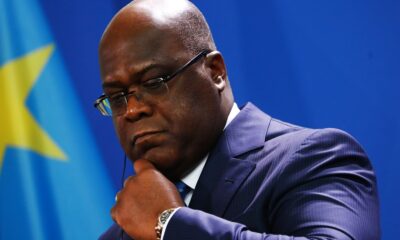

How South Africa, US elections could shape Tshisekedi’s bread in Kinshasa, By Charles Onyango-Obbo
Strictly Personal
Air Peace, capitalism and national interest, By Dakuku Peterside
Published
2 weeks agoon
April 16, 2024
Nigerian corporate influence and that of the West continue to collide. The rationale is straightforward: whereas corporate activity in Europe and America is part of their larger local and foreign policy engagement, privately owned enterprises in Nigeria or commercial interests are not part of Nigeria’s foreign policy ecosystem, neither is there a strong culture of government support for privately owned enterprises’ expansion locally and internationally.
The relationship between Nigerian businesses and foreign policy is important to the national interest. When backing domestic Nigerian companies to compete on a worldwide scale, the government should see it as a lever to drive foreign policy, and national strategic interest, promote trade, enhance national security considerations, and minimize distortion in the domestic market as the foreign airlines were doing, boost GDP, create employment opportunities, and optimize corporate returns for the firms.
Admitted nations do not always interfere directly in their companies’ business and commercial dealings, and there are always exceptions. I can cite two areas of exception: military sales by companies because of their strategic implications and are, therefore, part of foreign and diplomatic policy and processes. The second is where the products or routes of a company have implications for foreign policy. Air Peace falls into the second category in the Lagos – London route.
Two events demonstrate an emerging trend that, if not checked, will disincentivize Nigerian firms from competing in the global marketplace. There are other notable examples, but I am using these two examples because they are very recent and ongoing, and they are typological representations of the need for Nigerian government backing and support for local companies that are playing in a very competitive international market dominated by big foreign companies whose governments are using all forms of foreign policies and diplomacy to support and sustain.
The first is Air Peace. It is the only Nigerian-owned aviation company playing globally and checkmating the dominance of foreign airlines. The most recent advance is the commencement of flights on the Lagos – London route. In Nigeria, foreign airlines are well-established and accustomed to a lack of rivalry, yet a free-market economy depends on the existence of competition. Nigeria has significantly larger airline profits per passenger than other comparable African nations. Insufficient competition has resulted in high ticket costs and poor service quality. It is precisely this jinx that Air Peace is attempting to break.
On March 30, 2024, Air Peace reciprocated the lopsided Bilateral Air Service Agreement, BASA, between Nigeria and the United Kingdom when the local airline began direct flight operations from Lagos to Gatwick Airport in London. This elicited several reactions from foreign airlines backed by their various sovereigns because of their strategic interest. A critical response is the commencement of a price war. Before the Air Peace entry, the price of international flight tickets on the Lagos-London route had soared to as much as N3.5 million for the economy ticket. However, after Air Peace introduced a return economy class ticket priced at N1.2 million, foreign carriers like British Airways, Virgin Atlantic, and Qatar Airways reduced their fares significantly to remain competitive.
In a price war, there is little the government can do. In an open-market competitive situation such as this, our government must not act in a manner that suggests it is antagonistic to foreign players and competitors. There must be an appearance of a level playing field. However, government owes Air Peace protection against foreign competitors backed by their home governments. This is in the overall interest of the Nigerian consumer of goods and services. Competition history in the airspace works where the Consumer Protection Authority in the host country is active. This is almost absent in Nigeria and it is a reason why foreign airlines have been arbitrary in pricing their tickets. Nigerian consumers are often at the mercy of these foreign firms who lack any vista of patriotism and are more inclined to protect the national interest of their governments and countries.
It would not be too much to expect Nigerian companies playing globally to benefit from the protection of the Nigerian government to limit influence peddling by foreign-owned companies. The success of Air Peace should enable a more competitive and sustainable market, allowing domestic players to grow their network and propel Nigeria to the forefront of international aviation.
The second is Proforce, a Nigerian-owned military hardware manufacturing firm active in Rwanda, Chad, Mali, Ghana, Niger, Burkina Faso, and South Sudan. Despite the growing capacity of Proforce in military hardware manufacturing, Nigeria entered two lopsided arrangements with two UAE firms to supply military equipment worth billions of dollars , respectively. Both deals are backed by the UAE government but executed by UAE firms.
These deals on a more extensive web are not unconnected with UAE’s national strategic interest. In pursuit of its strategic national interest, India is pushing Indian firms to supply military equipment to Nigeria. The Nigerian defence equipment market has seen weaker indigenous competitors driven out due to the combination of local manufacturers’ lack of competitive capacity and government patronage of Asian, European, and US firms in the defence equipment manufacturing sector. This is a misnomer and needs to be corrected.
Not only should our government be the primary customer of this firm if its products meet international standards, but it should also support and protect it from the harsh competitive realities of a challenging but strategic market directly linked to our national military procurement ecosystem. The ability to produce military hardware locally is significant to our defence strategy.
This firm and similar companies playing in this strategic defence area must be considered strategic and have a considerable place in Nigeria’s foreign policy calculations. Protecting Nigeria’s interests is the primary reason for our engagement in global diplomacy. The government must deliberately balance national interest with capacity and competence in military hardware purchases. It will not be too much to ask these foreign firms to partner with local companies so we can embed the technology transfer advantages.
Our government must create an environment that enables our local companies to compete globally and ply their trades in various countries. It should be part of the government’s overall economic, strategic growth agenda to identify areas or sectors in which Nigerian companies have a competitive advantage, especially in the sub-region and across Africa and support the companies in these sectors to advance and grow to dominate in the African region with a view to competing globally. Government support in the form of incentives such as competitive grants ,tax credit for consumers ,low-interest capital, patronage, G2G business, operational support, and diplomatic lobbying, amongst others, will alter the competitive landscape. Governments and key government agencies in the west retain the services of lobbying firms in pursuit of its strategic interest.
Nigerian firms’ competitiveness on a global scale can only be enhanced by the support of the Nigerian government. Foreign policy interests should be a key driver of Nigerian trade agreements. How does the Nigerian government support private companies to grow and compete globally? Is it intentionally mapping out growth areas and creating opportunities for Nigerian firms to maximize their potential? Is the government at the domestic level removing bottlenecks and impediments to private company growth, allowing a level playing field for these companies to compete with international companies?
Why is the government patronising foreign firms against local firms if their products are of similar value? Why are Nigerian consumers left to the hands of international companies in some sectors without the government actively supporting the growth of local firms to compete in those sectors? These questions merit honest answers. Nigerian national interest must be the driving factor for our foreign policies, which must cover the private sector, just as is the case with most developed countries. The new global capitalism is not a product of accident or chance; the government has choreographed and shaped it by using foreign policies to support and protect local firms competing globally. Nigeria must learn to do the same to build a strong economy with more jobs.
Strictly Personal
This is chaos, not governance, and we must stop it, By Tee Ngugi
Published
3 weeks agoon
April 10, 2024
The following are stories that have dominated mainstream media in recent times. Fake fertiliser and attempts by powerful politicians to kill the story. A nation of bribes, government ministries and corporations where the vice is so routine that it has the semblance of policy. Irregular spending of billions in Nairobi County.
Billions are spent in all countries on domestic and foreign travel. Grabbing of land belonging to state corporations, was a scam reminiscent of the Kanu era when even public toilets would be grabbed. Crisis in the health and education sectors.
Tribalism in hiring for state jobs. Return of construction in riparian lands and natural waterways. Relocation of major businesses because of high cost of power and heavy taxation. A tax regime that is so punitive, it squeezes life out of small businesses. Etc, ad nauseam.
To be fair, these stories of thievery, mismanagement, negligence, incompetence and greed have been present in all administrations since independence.
However, instead of the cynically-named “mama mboga” government reversing this gradual slide towards state failure, it is fuelling it.
Alternately, it’s campaigning for 2027 or gallivanting all over the world, evoking the legend of Emperor Nero playing the violin as Rome burned.
A government is run based on strict adherence to policies and laws. It appoints the most competent personnel, irrespective of tribe, to run efficient departments which have clear-cut goals.
It aligns education to its national vision. Its strategies to achieve food security should be driven by the best brains and guided by innovative policies. It enacts policies that attract investment and incentivize building of businesses. It treats any kind of thievery or negligence as sabotage.
Government is not a political party. Government officials should have nothing to do with political party matters. They should be so engaged in their government duties that they literally would not have time for party issues. Government jobs should not be used to reward girlfriends and cronies.
Government is exhausting work undertaken because of a passion to transform lives, not for the trappings of power. Government is not endless campaigning to win the next election. To his credit, Mwai Kibaki left party matters alone until he had to run for re-election.
We have corrupted the meaning of government. We have parliamentarians beholden to their tribes, not to ideas.
We have incompetent and corrupt judges. We have a civil service where you bribe to be served. Police take bribes to allow death traps on our roads. We have urban planners who plan nothing except how to line their pockets. We have regulatory agencies that regulate nothing, including the intake of their fat stomachs.
We have advisers who advise on which tenders should go to whom. There is no central organising ethos at the heart of government. There is no sense of national purpose. We have flurries of national activities, policies, legislation, appointments which don’t lead to meaningful growth. We just run on the same spot.
Tee Ngugi is a Nairobi-based political commentator
EDITOR’S PICK


France willing to pay for Morocco’s 3GW power line to Western Sahara
Bruno Le Maire, the French finance minister, said on Friday that France was ready to help pay for a 3...


Nigerian troops neutralise 216 terrorists, arrest 332 in one week— Official
The Nigerian Army Defence Headquarters (DHQ) says troops from different operation theaters across the country neutralised 216 terrorists and arrested...
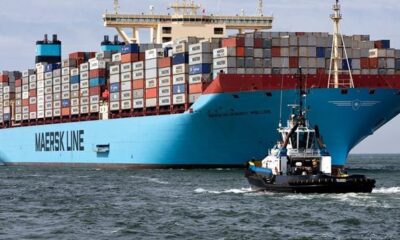

Nigeria loses $9.2 billion to foreign shipowners
A group of maritime experts has revealed that Nigeria loses $9.2bn a year to foreign shipping lines that carry goods...
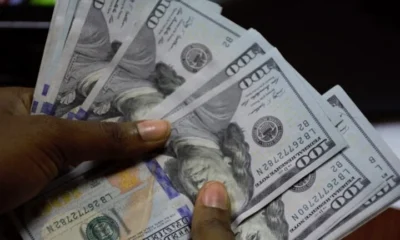

Nigeria wants managers for proposed $10 billion diaspora fund
A tender paper shows that Nigeria is looking for fund managers for a $10 billion diaspora fund to bring in...


Al Ahly, Esperance to clash in CAF Champions League final
Two of Africa’s club giants, Egypt’s Al Ahly and Esperance of Tunisia, will do battle next month over two legs...


Collabo with Burna Boy enabled me buy house for my mum— Mozambican DJ Tarico
Mozambican disc jockey and sound-producer, DJ Tarico, has credited Nigeria’s Afrobeats sensation, Burna Boy, with his sudden wealth which enabled...


RepAir, Cella partner to launch carbon capture in Kenya
Global Direct Air Capture (DAC) firm, RepAir, has entered into a partnership with carbon storage technology company, Cella, to launch...


Mapanza traditional council shares positive outlook on media rights, freedom of expression
Jonathan Muchindu, a representative of the Traditional Council of Mapanza Chiefdom in Choma District, Southern Province, Zambia, asserts that the...
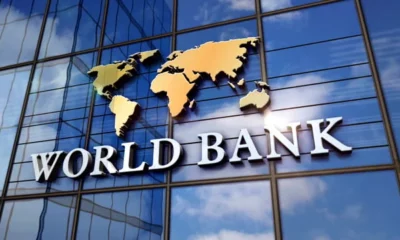

World Bank grants Malawi $57.6 million for food crisis
As a response to its food crisis, the World Bank said on Friday that it would give Malawi $57.6 million...
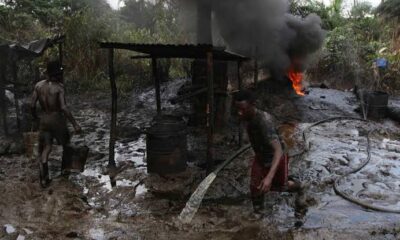

Nigeria loses N1.29trn annually to crude oil theft, vandalism— Reps Speaker
Speaker of Nigeria’s House of Representatives, Hon. Abbas Tajudeen, has revealed that the country loses a whopping sum of N1.29...
Trending
-

 Sports2 days ago
Sports2 days agoFormer Zambian captain Rainford Kalaba discharged from hospital after near-fatal accident
-

 Metro2 days ago
Metro2 days ago‘Cyber Act fails to protect the vulnerable,’ Student demands media inclusivity for persons with disabilities
-

 Tech2 days ago
Tech2 days agoIntel Liftoff Hackathon 2024 calls for applications from African AI startups
-

 Culture18 hours ago
Culture18 hours agoCollabo with Burna Boy enabled me buy house for my mum— Mozambican DJ Tarico


